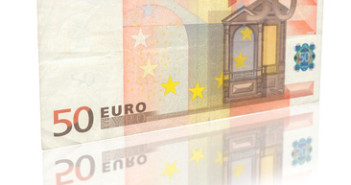EUR/USD was down sharply after the ECB policy meeting on Thursday. Speaking after the meeting, ECB head Mario Draghi, warned that the high value of the euro was a risk to growth in the Eurozone, and the euro responded by shedding more than a cent against the US dollar. In economic news, US Unemployment Claims was another disappointment, as the indicator failed to meet the market estimate. There was positive news to kick off Friday, as German Trade Balance hit a three-month high. Today’s major release is US Trade Balance.
EUR/USD Technical
- Asian session: Euro/dollar was uneventful, and the pair touched a low of 1.3382, before consolidating at 1.3396. In the European session, the pair has crossed above the 1.34 line.
- Current range: 1.34 to 1.3480.
Further levels in both directions:Â 








- Below: 1.34, 1.3360, 1.3290, 1.3255Â and 1.3170, 1.3130, 1.3110, 1.3030, 1.30 and 1.2960.
- Above: 1.3480, 1.3588, 1.3690, 1.3740, and 1.3860, 1.3915 and 1.40.
- The pair is testing the 1.34 line.
- 1.3480 is providing resistance. This line has strengthened as the pair trades at lower levels.
Euro/dollar sinks after Draghi’s remarks – click on the graph to enlarge.
EUR/USD Fundamentals
- 1:00 US FOMC Member Charles Evans Speaks.
- 7:00Â German Trade Balance. Exp. 13.7. Actual 16.8B.
- 7:45 French Government Budget Balance. Actual -87.2B.
- 9:00 Italian Industrial Production. Exp. 0.2%. Actual 0.4%.
- All Day: EU Economic Summit (Day 2)
- 13:30 US Trade Balance. Exp. -45.7B.
- 15:00 US Wholesale Inventories. Exp. 0.5%.
For more events and lines, see the EUR/USD
EUR/USD Sentiment
- Draghi drags down euro: The euro began its recent sharp rally following positive remarks by ECB head Mario Draghi about the Eurozone economy. Speaking at a press conference on Thursday, Draghi once again lit a fire under the currency, only this time in the opposite direction. Draghi warned that the high-flying euro was affecting prices and economic growth in the Eurozone. He stated that the exchange rate was not a policy target, but the ECB would “closely monitor money market developmentsâ€. The markets wasted little time in reacting to these comments, and the euro plunged, losing over a cent on the day. Almost lost in all the excitement was the fact that the ECB maintained its benchmark interest rate at 0.75%.
- Germany, France spar over euro rate: In a speech earlier this week before the European Parliament, French President Hollande called on the Eurozone to set a “medium term†target for the exchange rate of the euro. Hollande’s remarks were a response to the high value of the currency, which is hurting French exports and the manufacturing industry. However, German officials were quick to state their opposition to such a move. German Economy Minister Phillipp Roesler summed up the view in Berlin, declaring that “the objective must be to improve competitiveness and not to weaken the currencyâ€. While the German economy is showing recovery signs, the French economy continues to stumble, and Hollande is grabbing for any crutches he can lay his hands on, including a more competitive euro. The question of currency intervention will not disappear anytime soon, with heavyweights France and Germany at loggerheads over the issue.
- Germany shows improvement: Germany’s economy may not be booming, but there are some signs of improvement in the Eurozone’s largest economy, as underscored by Friday’s positive Trade Balance indicator. The country’s monthly surplus jumped to 16.8 billion euros, surprising the markets, which had expected a reading of 13.7 billion. This was the best showing since last November. German manufacturing numbers have also shown improvement, and recent employment figures were excellent. If the Eurozone is to get back on track in 2013, it will need a strong German economy to lead the way.
- Political crisis grips Spain: Spain is back in the headlines, but for a change, it’s not about the whether the country will ask for additional rescue funds for the troubled economy. Spanish Prime Minister Mariano Rajoy is involved in a complicated corruption case, and is accused of being involved in illegal transactions. Rajoy has denied any wrongdoing and has rejected calls to resign, but his party is losing public support and the issue could become a crisis for the government, which already has its hands full trying to keep the troubled economy afloat. The government is already deeply unpopular thanks due to worsening recession and staggering unemployment levels, and this latest political crisis could further undermine investor confidence. Spanish borrowing costs rose slightly following the news, as the markets nervously monitor the latest developments out of Madrid.
- Italian banking scandal casts shadow on election: Italian elections are always a heated affair, and the current campaign is no exception, as Italians head for the polls in a few weeks. The latest twist involves a derivatives scandal at the world’s oldest bank, Monte dei Paschi. One of the largest banks in Italy, it was forced to ask for 3.9 billion euros in state aid last year due to huge losses. Former PM Silvio Berlosconi has sought to capitalize on the scandal, blaming outgoing PM Mario Monti for providing funds to the bank. Both men are prime ministerial candidates in the upcoming election, in what has become a tight race. The scandal could affect the outcome of the election, and has also put ECB head Mario Draghi in the spotlight, since he was the head of the Bank of Italy when the trades in question were carried out.



